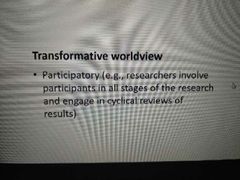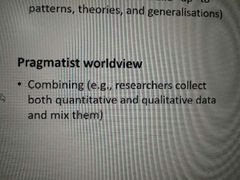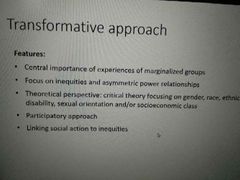![]()
![]()
![]()
Use LEFT and RIGHT arrow keys to navigate between flashcards;
Use UP and DOWN arrow keys to flip the card;
H to show hint;
A reads text to speech;
23 Cards in this Set
- Front
- Back
|
Reductionism |
Bottom-up. Problem: emergent properties. Population ecology, smaller view. |
|
|
Holism |
Top-top. Problem: mechanisms are unknown. |
|
|
Macro-explanations |
Top-down. Problem: hard to test alternative explanations using aggregated data (ecological inference). Reasonable system/model. Uncertainty |
|
|
Different scales of study |
- Pesticide application - detail, experiment. Reductionist thinking. - Climate change - large scale. Low temporal scale (thousands of years). Observational studies. |
|
|
Scientific methods in Natural Science |
- Controlled laboratory experiments. - Controlled field experiments - Correlations, time series (things happening at the same time, cause and effect) - Unreplicated field experiments (forest fires). - Case studies - Models (climate) - |
|
|
Knowledge |
"a correct description of the world" " Common for a large number of people" " Partial/provisional/temporary" " purposeful and socially constructed" "generalizable vs. Contextual" |
|
|
Positivism |
-Facts from direct observations - facts separated from values - Often quantitative methods - propositions from the facts - Aim: universal causal laws |
|
|
Critique positivism |
- Does direct observation provide sound basis of knowledge? - Facts and values cannot be separated - Observations and theory have complicated relationship |
|
|
Constructivism |
- Humanistic and social science - Human being construct mening of the world they interpret - Open-ended questions for participants - Sense making of the world based on historical and social perspectives - Context of participants - Interpretation shaped by researcher's background - generation of meaning is social |
|
|
Post positivist worldview |
Deductive. Researchers test an priori theory |
|
|
Constructivist worldview |
Inductive (researchers start with participant's views- build up to patterns, theories) |
|
|
Transformative worldview |

|
|
|
Pragmatic worldview |

|
|
|
Transformative approach |

Often left-orinted politically |
|
|
Env. Science as a post-normal science (PUBLIC ECOLOGY) |
Under the hegemony of positivism it is difficult to formulate and defend conservation goals on the scientific grounds |
|
|
Transdisciplinary |
Involve a range of stakeholders in researchers including non-academics. - Actionable knowledge, legitimacy |
|
|
Interdisciplinary approach |
Integrate different disciplines and methods to yield new understandings about an issue. - Comprehensive knowledge base |
|
|
Delinking |
- Disconnecting from colonial matrix of power. - it's the action, not the project |
|
|
Decoloniality |
Absence of coloniality, a project that is aspired |
|
|
Coloniality |
Dark side of modernity (Mignolo). - Repeatedly reproduced. - Hidden mechanisms of subordination, repression, capitalism and patriarchy |
|
|
Pluriverse |
Opposed to universality - coexisting epistemologies, worldviews |
|
|
Epistemology |
Side of philosophy concerned with questions about knowledge, evidence and rationality (Godfrey-Smith) |
|
|
Metaphysics |
Deals with general questions about the nature of reality (Godfrey-Smith) |

